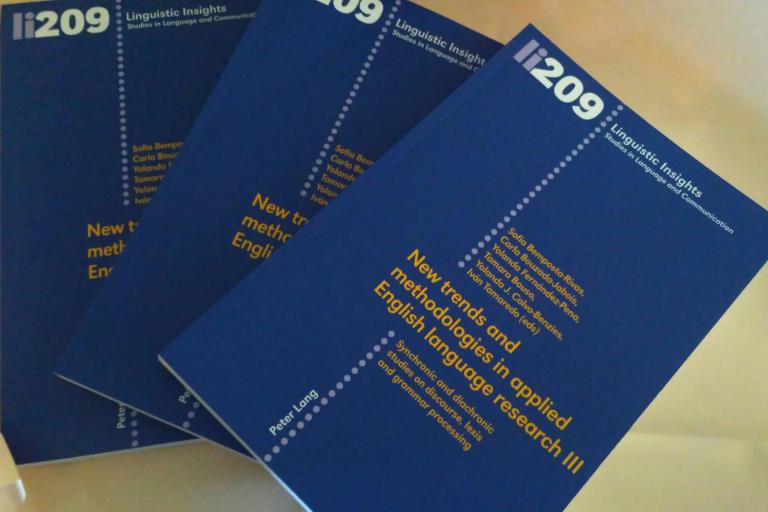Prof Hubert Cuyckens, professor of English language and linguistics at the University of Leuven (Functional Linguistics Leuven Research Group), visited the LVTC research unit and taught the research seminar "Aspect of clause complementation in English" at the University of Vigo in November 2006.
Cv details
Hubert Cuyckens studied Germanic Languages (Dutch and English), with a specialization in linguistics at the University of Antwerp. After obtaining his MA in 1979, he worked as a research fellow of the National Fund of Scientific Research and then as a teaching assistant at the University of Antwerp. He completed his PhD in 1991, and stayed on at the University of Antwerp combining his research into the semantics of prepositions with an almost full-time job as a teacher of English. In 1997-98, he spent one year at the University of Hamburg as a Humboldt Research Fellow. Since October 1998, he has held a tenured appointment at the University of Leuven as a professor of English language and linguistics. His recent research and teaching is mainly concerned with issues in the diachrony of English, from a cognitive-functional and usage-based perspective. Hubert Cuyckens is the (co-)editor of several volumes in the domains of lexical semantics, cognitive linguistics, and adpositions. He is co-editor (with Dirk Geeraerts) of (2007) The Handbook of Cognitive Linguistics.
Abstract of the seminar
This seminar dealt with the distribution of complement constructions (CCs) involving to-infinitives, gerunds and that-clauses in the various periods of the history of English (from Old English to Present-Day English) and looked for the factors determining this distribution. It provided an account for the change and variation in CC distribution patterns from a diachronic perspective, thus going beyond the synchronic, primarily semantically based accounts mainly advocated in the cognitive-linguistic paradigm. It was also shown that the distribution of CCs at any stage of the history of English (including Present-Day English) is motivated by the interplay of various factors, with semantic motivation constituting only one factor, albeit not the least important one).
Specific topics included
- aspects of the emergence and diffusion of the for...to-infinitive
- adjective complementation
- that-clauses and gerundives compared
- the diffusion of gerunds in Late Modern English.







